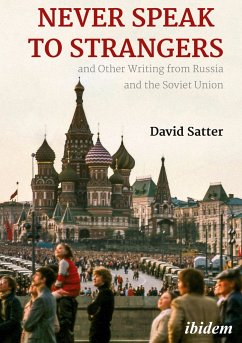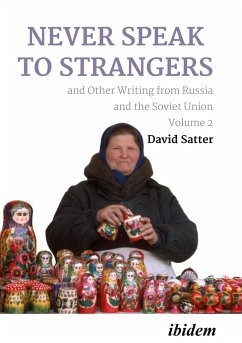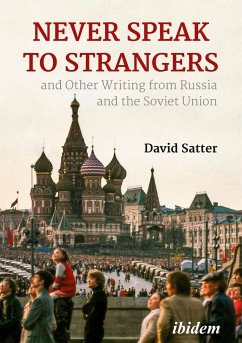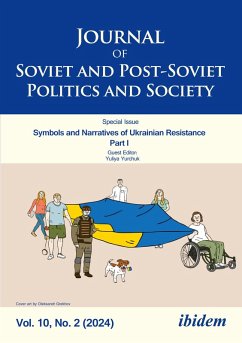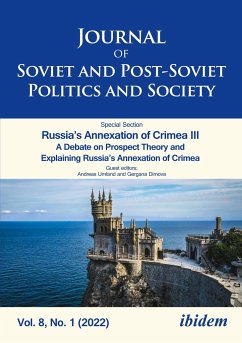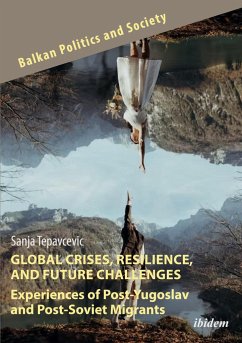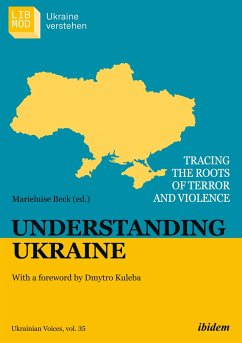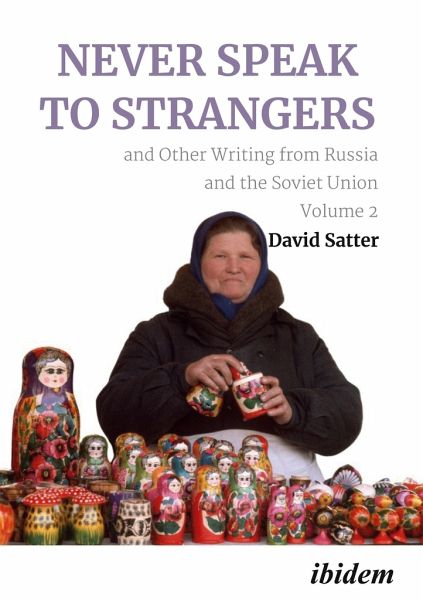
Never Speak to Strangers and Other Writing from Russia and the Soviet Union
Versandkostenfrei!
Versandfertig in 6-10 Tagen
29,90 €
inkl. MwSt.
Weitere Ausgaben:

PAYBACK Punkte
0 °P sammeln!
David Satter is one of the world's leading commentators on Russia. The two-volume book series Never Speak to Strangers is a collection of his articles and essays. Volume two includes articles about the Russia-Ukraine war and argues that this tragic conflict was preventable. David Satter's writings and interviews describe the psychological roots of the conflict. Picking up where the first volume left off, the second volume of Never Speak to Strangers includes material on the historical and psychological roots of Russian aggression, the Yeltsin and Putin regimes, and, in particular, Russia's war...
David Satter is one of the world's leading commentators on Russia. The two-volume book series Never Speak to Strangers is a collection of his articles and essays. Volume two includes articles about the Russia-Ukraine war and argues that this tragic conflict was preventable. David Satter's writings and interviews describe the psychological roots of the conflict. Picking up where the first volume left off, the second volume of Never Speak to Strangers includes material on the historical and psychological roots of Russian aggression, the Yeltsin and Putin regimes, and, in particular, Russia's war against Ukraine. David Satter shows that change could come to Russia in the wake of a defeat in Ukraine, but external events will not be enough to divert Russia permanently from foreingn aggression and internal repression. For that, what is required is something more fundamental, a recognition that world order must be based on universal moral values and a rejection once and for all of Russia's "special way".




